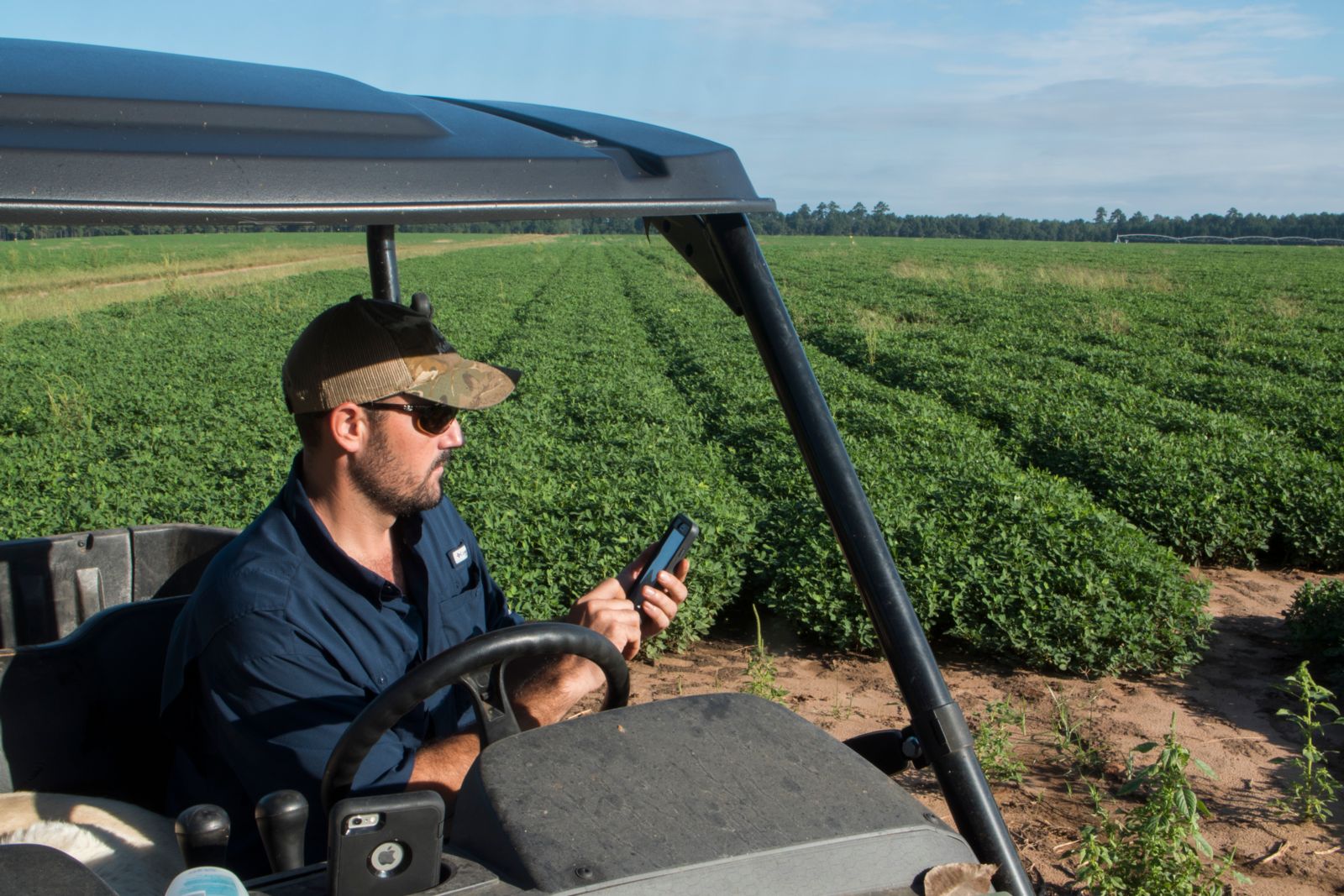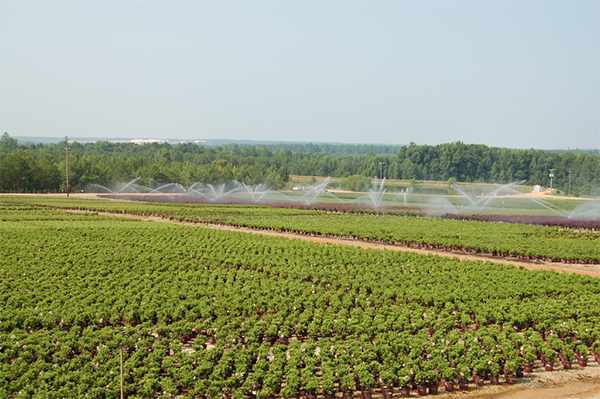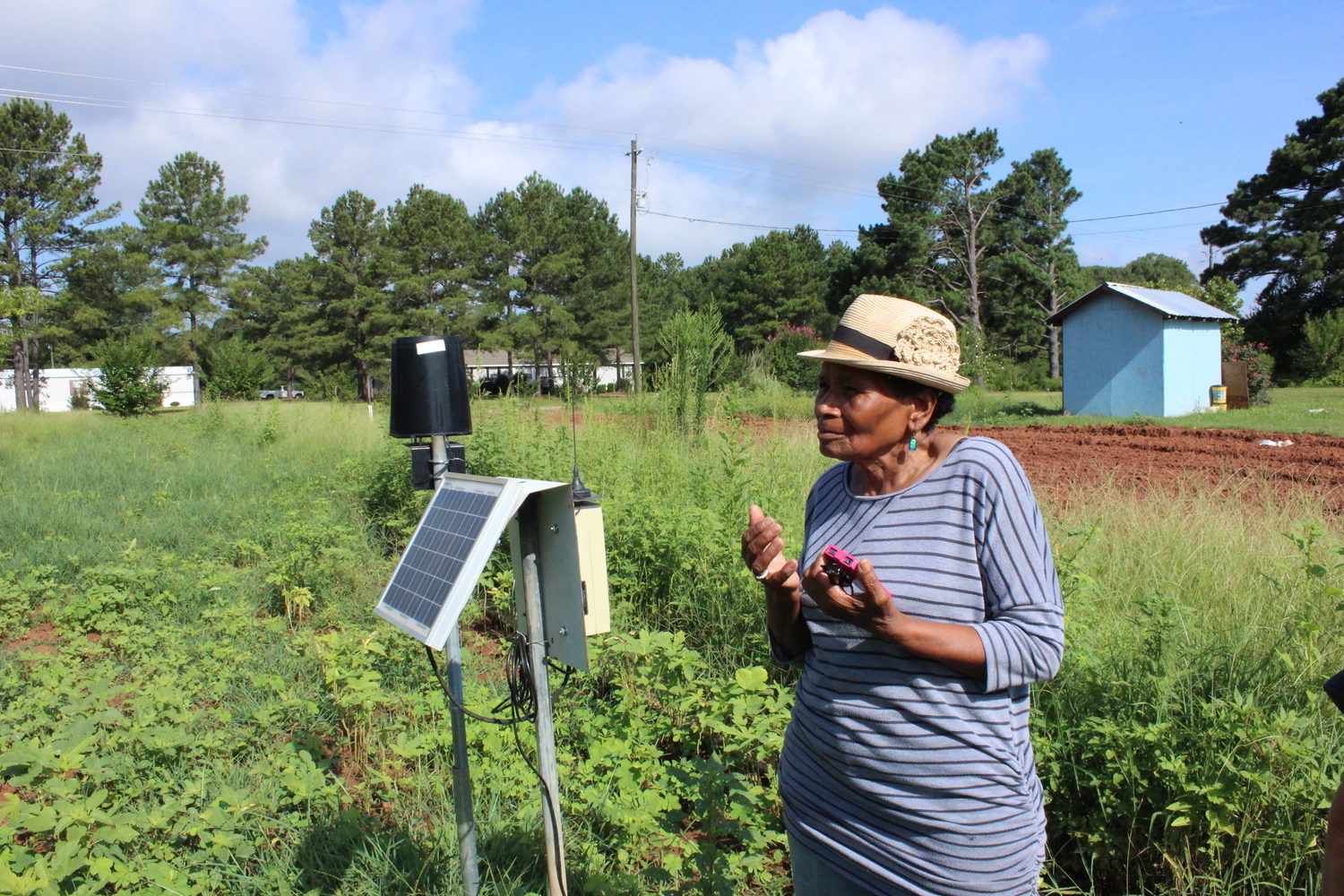Ag News
Farmers are irrigating smarter
Posted on Jul 24, 2019 at 0:00 AM
By Chris Groskreutz, USDA Natural Resources Conservation Service - Georgia
If you are a Georgia farmer, you know water as more of a necessity than a luxury. By now, because of the lack of consistent rain, chances are good that you’ve been irrigating your crops just to keep them going. Timely rain is important to growing any crop. Being able to provide the right amount of water, in the right place, at the right time is critical to the survival of farmers today.
Today there are more water conservation tools available now than ever and great strides are being made to meet this challenge. Row crop farmers like Adam McLendon, who operates McLendon Acres with his father, Marty, in southwest Georgia’s Calhoun
County, are showing that by working smart they are able to help meet the world’s growing demand for food in a sustainable way.
“I am a family farmer, an outdoorsman and an environmentalist. I want to protect our resources for future generations,” says Adam. “By using smart irrigation technology, I know that I am taking a big step to conserve and protect our natural resources. It helps me do this while still producing a quality crop as efficiently as possible.”
During irrigation season, Adam begins each morning on his mobile device. Using advanced technology installed throughout his family’s farm, he’s able to see which irrigation pivots are running, and which ones aren’t, including those that are supposed to be. Soil moisture sensors located in the crop fields communicate wirelessly to computers on the farm equipped with special software. That software knows the age and precise needs of the crop being grown and can control when the irrigation systems turn on and off, based on the prescribed amount of water needed by the plant’s life stage and growing conditions.

Adam McLendon
And for those pivots that should be running but aren’t, the technology in the palm of Adam’s hands helps him prioritize repairs and other tasks of the day, which saves him a tremendous amount of time and energy.
Knowing the crop is thirsty is one thing, but another valuable benefit of new water conservation technology farmers are using is that more of the water being applied to crops is getting where it is needed most.
To do this, center pivot irrigation systems are being retrofitted with lower pressure drop nozzles that take the water closer to the ground before its released. This approach is improving previous generations of equipment that used high impact sprinklers, which towered ten feet or more over the ground and were more susceptible to wind drift and applied too much or little water.
The smart irrigation approach can go even further when irrigation systems are equipped with variable rate irrigation (VRI) technology. VRI enables certain portions of the pivot systems to turn themselves off and on so water is only applied to the areas of the field that need it. This is especially effective, and cost saving, when center pivots are built to cross over creeks, ponds or other wet areas that don’t need water.
“Farmers in general are some of the most conservation minded individuals out there and understand better than anyone how important these resources are, and how conserving them can allow us to produce our crops for generations,” McLendon said.
When you stop to consider the cost per gallon of diesel fuel or kilowatt of electricity that it costs to power these irrigation systems, you can better understand how McLendon and farmers like himsee water savings as both environmental and economic stewardship.

Sprinklers at McCorkle Nurseries
For a third-generation ornamental plant farmer who supplies more than four million plants each year to the landscape industry in Georgia and the Carolinas, Skeeter McCorkle says, “Water is central to our operation.”
McCorkle is speaking literally and figuratively on behalf of his family’s McCorkle Nurseries, Inc., which is located outside of Augusta and has been conserving water since the company’s birth in 1942. The farm is set up to recapture and reuse most of its irrigation water through a closed loop system that gravity feeds rain and unused irrigation water to ponds.
“The recaptured water is then pumped back up to the plants when needed and used over and over,” McCorkle explained.
The McCorkles continue to adapt and innovate their water conservation efforts by retrofitting their greenhouse irrigation systems with more efficient water emitters.
These new emitters, like those being added to row crop center pivots, use lower pressure heads that bring the water closer to the plant, versus using high impact sprinkler heads that are like common yard sprinklers.
Additionally, as part of a United States Department of Agriculture (USDA) funded specialty crop research initiative grant administered by the National Institute for Food and Agriculture, the McCorkles are assessing how the use of soil moisture sensors and computer-controlled irrigation scheduling is feasible for plant nurseries.Early results are impressive and convincing.
“The water savings for us was significant. It [the technology] reduced water usage by more than half for certain crops, and we are
adapting that technology to other parts of our operation,” McCorkle said
Similar water conservation results can be found on Ruby Davis’ Calhoun County vegetable farm. She too has used soil moisture sensor technologies to know when to turn on and off her irrigation system, thus improving her yields while keeping costs at a minimum.
This is especially beneficial for small acreage producers who don’t have vast amounts of acreage to spread costs over and need to get as much yield as they can out of each square foot of production.
Micro-irrigation systems, which deliver the water plants need directly on top of the root zones through a drip tape, are another effective tool to help smaller farmers like Davis irrigate smarter.
For tips on how to be a smarter irrigator on your farm and around your home, please visit www.smartirrigationgeorgia.com.

Ruby Davis
Visit www.farmers.gov/conserve to learn more about USDA programs that help farmers conserve water and other natural resources.
Chris Groskreutz is a state public affairs specialist in the USDA - Natural Resources Conservation Service Georgia office.
- Categories:
- Tags: